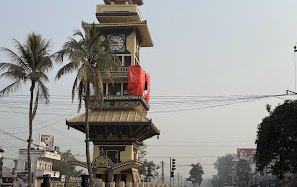In 1953, Mohammad Yunus, an economist, banker, and a Noble Peace Prize recipient, established the Grameen Bank. The bank in solely based on the concept of “microlending,” which provides for small loans to the impoverished which they return back to the Bank little by little and whenever they can.
These poor people can take the money to buy the necessary materials needed for products of their individualized skills, like basket-weaving. Today, the Grameen Bank is spread out over 44 developing countries and has borrowers amounting to over 8.29 million, 65% of whom have managed to lift themselves out of poverty and 95% of whom are women. What is more about the Bank is that, unlike other, multibillionaire companies, 92% of the Bank is owned by the poor who borrow money, with shares as small as just $3. The name Grameen itself implies to a “village bank,” one of the core purposes of Yunus’ intentions to establish the Bank at a local level.
With this revolutionizing idea and a simple degree in economics, Yunus managed to change and shape the lives of millions of people, a humanitarian desire that most of us possess. Firstly, what makes Yunus a great man is that he started with something small, a small realization that hit him when he visited a woman in a Bengali village and found out that she needed just 15 paisa to buy the necessary materials for her stools and even make a tad bit of profit. He started as just an economics professor, with banks and other institutions clearly opposing his idea of microlending, but emerged as a new leader of this modern world. Most of us forget that we can always work with what we have. There is no other way than to start small, with very little resources, and work out way up from there.
Using his profession, Yunus showed us that all of us don’t have to end up like stock brokers or corporate lawyers if we pursue any kind of a professional life. There are still ways, like the one Yunus has shown, to pursue something incredible while still maintaining the level of our studies. We can all be service to our nation using our first-rate degrees. What’s more is that when we get the privilege of getting educated in a higher degree, it becomes our responsibility to come up with creative, more mature ideas that will help the world we live in. There is not one set direction we have to walk along when we choose to get a degree in economics or English or psychology. There are multiple ways to implement the knowledge from the degrees in the world around us.
Lastly, I think Yunus’ decision to start at a local level to make the difference is probably of more worth than any other. Making a difference in one’s own community is the first step towards doing something of satisfaction. Since we get to be the ones who get a strong education, it comes as responsibility for us to take care of those who cannot do without the help of others from their own community.
- Highlights of KUSL’s Launching Ceremony
- Aug 17, 2014
- Labour Force Leaving The Country
- Mar 24, 2014
- Thinking about Nepal’s Think Tanks
- Nov 10, 2013
- The five years’ BBM-LLB Course of the Kathmandu University Law School
- Sep 13, 2013
- JUDICIARY: Judging Judges
- Aug 30, 2013
















